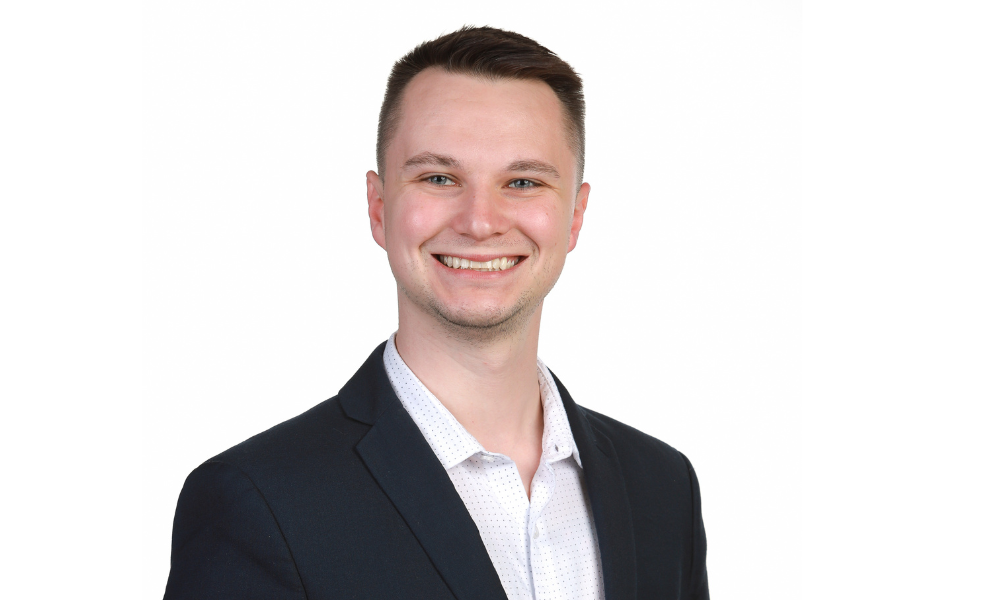Young advisor on why he focuses on pre-retirees, how he manages risk & emotion at sensitive time in clients' lives

For a young advisor, Evan Riddell CFP specializes in an older client base. The lead at Riddell Private Wealth Management, part of IG Private Wealth Management, has built much of his practice around pre-retirees and retirees. Despite his 15+ years in the industry, Riddell admits if he shaves his beard he’ll look more like his practice's clients’ kids or even grandkids. Riddell was recently named one of WP’s Top 40 under 40 advisors and explained how he has built a successful practice around an older client base, in part by turning his youth to his advantage.
As the baby boomer generation retires, many of the professionals who served them are retiring too. Clients’ accountants, dentists, lawyers and past advisors are calling it a day, so the idea of a younger advisor means someone they can rely on for the rest of their lives. Riddell wins and maintains their trust, too, by addressing the core issues around retirement as early as possible. He focuses on sequence of returns risk and helps protect against down markets in sensitive pre-retirement years. Perhaps more importantly, though, he manages the emotional side of retirement, preparing pre-retirees for the challenging transition so many of them face.
“I love the technical side of things, I want to try to provide the client savings and tax savings and all the things we can kind of do there, But I find also that talking to that emotional side of things as well is crucial,” Riddell says. “It’s really making sure people are prepared for what they will do. It won’t just be golfing every day, because after golfing five days straight for three months, people start getting kind of bored of golf. We try to ask ‘what are you going to feel the days with? And what are you really going to enjoy and get fulfillment from going forward?’
Emotional management around retirement, to Riddell, means diving much deeper on a pre-retiree’s goals, hopes and dreams. Most pre-retirees, he says, have an idea of what they want and need out of their retirement. However, when they answer his questions with vague ideas around ‘golf and travelling’ Riddell tries to push them just a little bit to think a bit more.
Many clients, he says, are successful entrepreneurs who spent their careers building businesses. Retirement can come as a shock to those individuals if they can’t devote their considerable energies to something else. Riddell works with them to find new avenues for fulfilment, whether it’s charitable work, or community engagement.
Doing that work involves laying significant groundwork, which is why Riddell tries to focus on clients approaching retirement rather than those already in retirement. The sensitive period of around 5 years leading up to the end of work can be crucial for both an emotional preparedness and a financial preparedness standpoint. It’s also one of the riskiest periods in an investor’s life.
Sequence of returns risk looms large in Riddell’s practice. The fact is, as clients get closer to retirement, their exposure to market risk increases. Traditionally this was managed through a gradual de-risking of portfolios, but Riddell notes that the current rate of inflation has made that old strategy obsolete. Clients need a greater degree of market exposure, but if they’re unlucky enough to face a down market in their first few years of retirement that could have significant negative impacts for them in subsequent years.
Riddell’s approach begins with emotional management. He will, jokingly, tell clients to prepare themselves for a market crash on the day they retire. While that might get a laugh, it also starts a conversation about preparedness and asset allocation. To deal with sequence of returns risk Riddell uses a bucket approach. He gives clients’ a cash bucket that can cover expenditures for 12 to 18 months. He also sets them up with an income bucket that includes GICs and other fixed income allocations to deliver yield with minimal risk. Finally, he allocates to a growth bucket which holds a portfolio of equities and growth-oriented securities. He coaches his clients to prepare them for potential volatility in that allocation, but notes that as retirees live longer and face higher costs that growth will prove crucial in the long-term.
Even in those technical details, Riddell includes an aspect of emotional management. Many new retirees are unaccustomed to the rhythm of their many income sources. Where they had once been paid biweekly, now they get a myriad of monthly and quarterly deposits. Riddell offers them the option to bundle their income streams into one of his managed accounts, which will pay them out on a biweekly basis just like during their working years.
Despite a technical and analytical approach to asset allocation, Riddell’s advantage in working with pre-retirees is that focus on the emotional management side. He says that as the baby boomer generation retires, they are growing to expect that level of understanding and service from their advisors, and learning to manage those emotions can be a great source of value for clients.
“In the industry we push so much technical knowledge, but the emotional side of things can’t be ignored,” Riddell says. “We need to emphasize learning communication skills, learning how to talk about some challenges people are going to go through in retirement. Areas like mental health and even loss of identity through these major shifts in their lives are really critical and probably should get a little more focus.”



